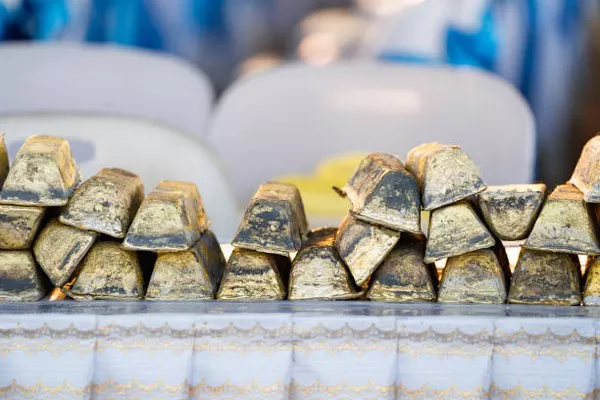In an era marked by economic uncertainties, investors are increasingly turning to precious metals as a reliable hedge against inflation and market volatility. Among the options available, silver bullion stands out as a tangible and historically proven asset. However, navigating the silver bullion market requires careful consideration and informed decision-making. In this article, we will explore the best ways to buy silver bullion, ensuring that investors make sound choices in their pursuit of financial stability.
Understanding Silver Bullion:
Silver bullion refers to physical silver in the form of bars, coins, or rounds that are at least 99.9% pure. Investors are drawn to silver for its dual role as a precious metal and an industrial commodity. This unique combination gives silver a diverse demand profile, making it an attractive investment option.
Choosing the Right Form:
The first step in buying silver bullion is deciding on the form that suits your investment goals. Common options include silver bars, coins, and rounds. Silver bars are often the most cost-effective, as they are produced in larger quantities and have lower premiums. Coins, on the other hand, may carry higher premiums due to their collectible value and legal tender status. Rounds, similar to coins, are typically privately minted and can be a more affordable option for investors.
Trusted Dealers:
Selecting a reputable dealer is crucial when buying silver bullion. A trusted dealer provides assurance regarding the authenticity and quality of the silver. Look for dealers with a longstanding reputation in the industry, as they are more likely to adhere to ethical standards and offer fair pricing. Reading customer reviews and seeking recommendations from experienced investors can help identify trustworthy dealers.
Verification of Authenticity:
Counterfeiting is a concern in the precious metals market, making verification of authenticity a critical step. Reputable dealers often provide certification and assay services, assuring buyers that the silver they are purchasing meets the specified purity standards. When buying from private sellers or online platforms, consider using an independent third-party grading service to verify the authenticity of the silver bullion.
Market Research and Pricing:
Before making a purchase, conduct thorough market research to understand the current pricing trends and factors influencing the silver market. Keep in mind that silver prices are influenced by various factors, including global economic conditions, geopolitical events, and industrial demand. Monitoring market indicators and staying informed about macroeconomic trends can aid in making well-timed investment decisions.
Storage and Security:
Once you acquire silver bullion, ensuring its safe storage is imperative. Consider options such as private vaults, safety deposit boxes, or home safes. Each method has its pros and cons, and the choice depends on individual preferences, the quantity of silver owned, and the level of security desired. Insurance is another aspect to consider to safeguard against potential loss or theft.
Diversification Strategies:
Diversification is a fundamental principle in investment strategy, and silver bullion can play a vital role in achieving a well-balanced portfolio. By including silver alongside other asset classes, such as stocks, bonds, and real estate, investors can mitigate risk and enhance overall portfolio stability. Assess your financial goals and risk tolerance to determine the appropriate allocation of silver within your investment portfolio.
Tax Implications:
Before making a substantial investment in silver bullion, it is essential to be aware of the tax implications. Different jurisdictions may have varying tax treatments for precious metals, including exemptions or reporting requirements. Consult with a tax professional to ensure compliance with local regulations and to optimize the tax efficiency of your silver bullion investment.
See Also Which Karat Gold Is Best For Daily Use? A Guide to Elegance
Conclusion:
Investing in silver bullion can be a prudent strategy for protecting wealth and diversifying a portfolio. However, success in the silver market requires careful consideration of various factors, from choosing the right form of silver to selecting reputable dealers and ensuring proper storage. By conducting thorough research and staying informed about market dynamics, investors can navigate the silver bullion market with confidence, making sound investment decisions that contribute to long-term financial stability.


